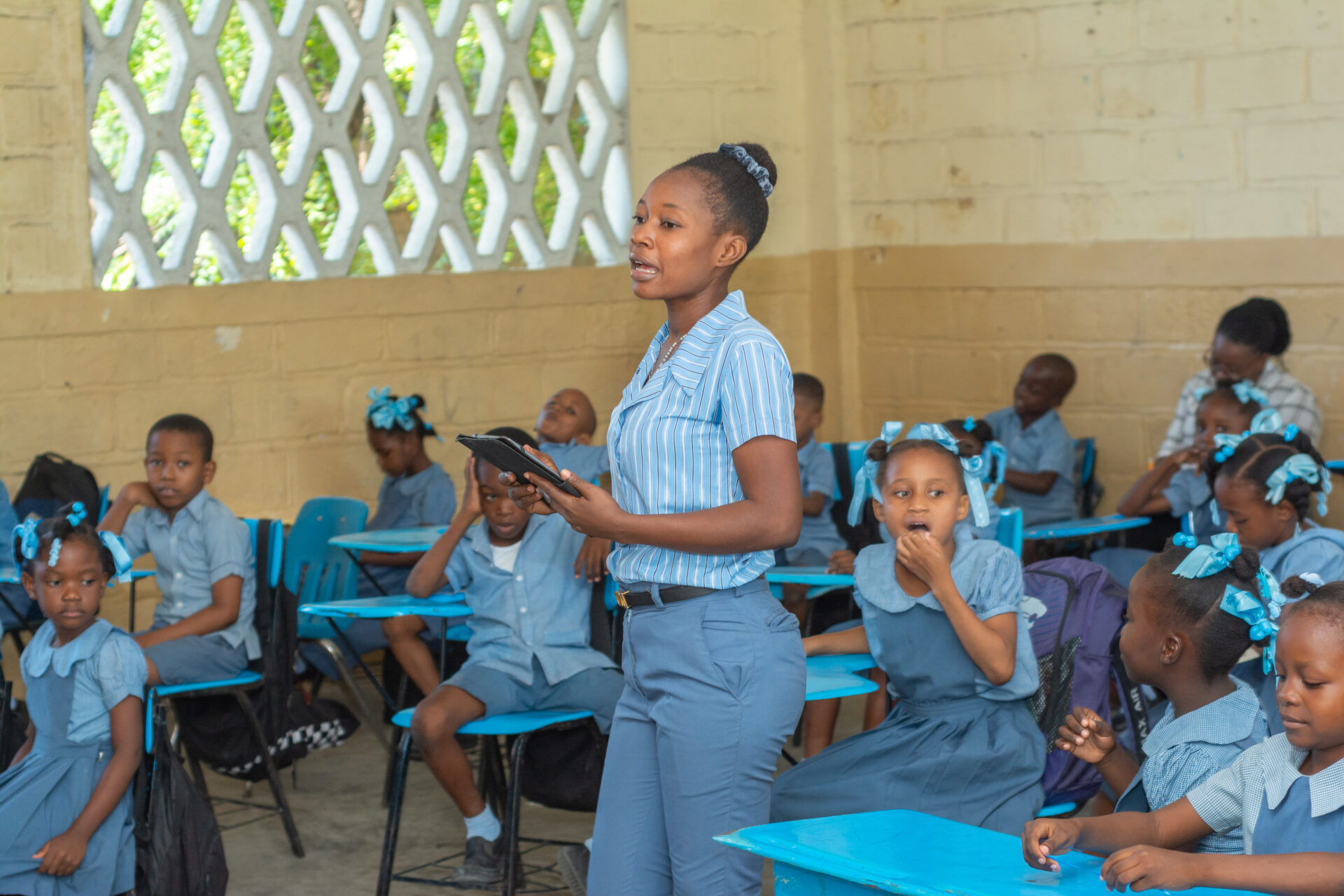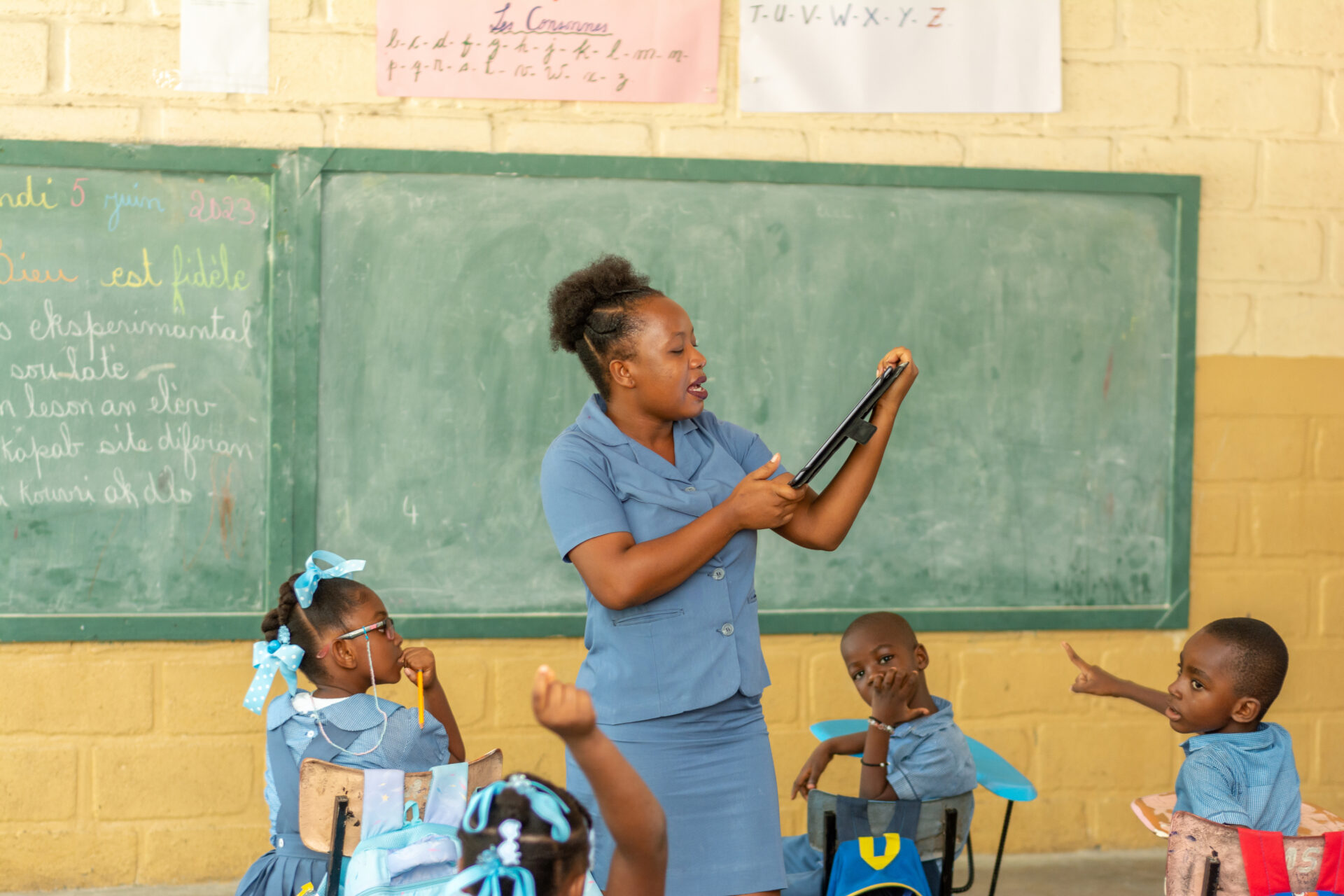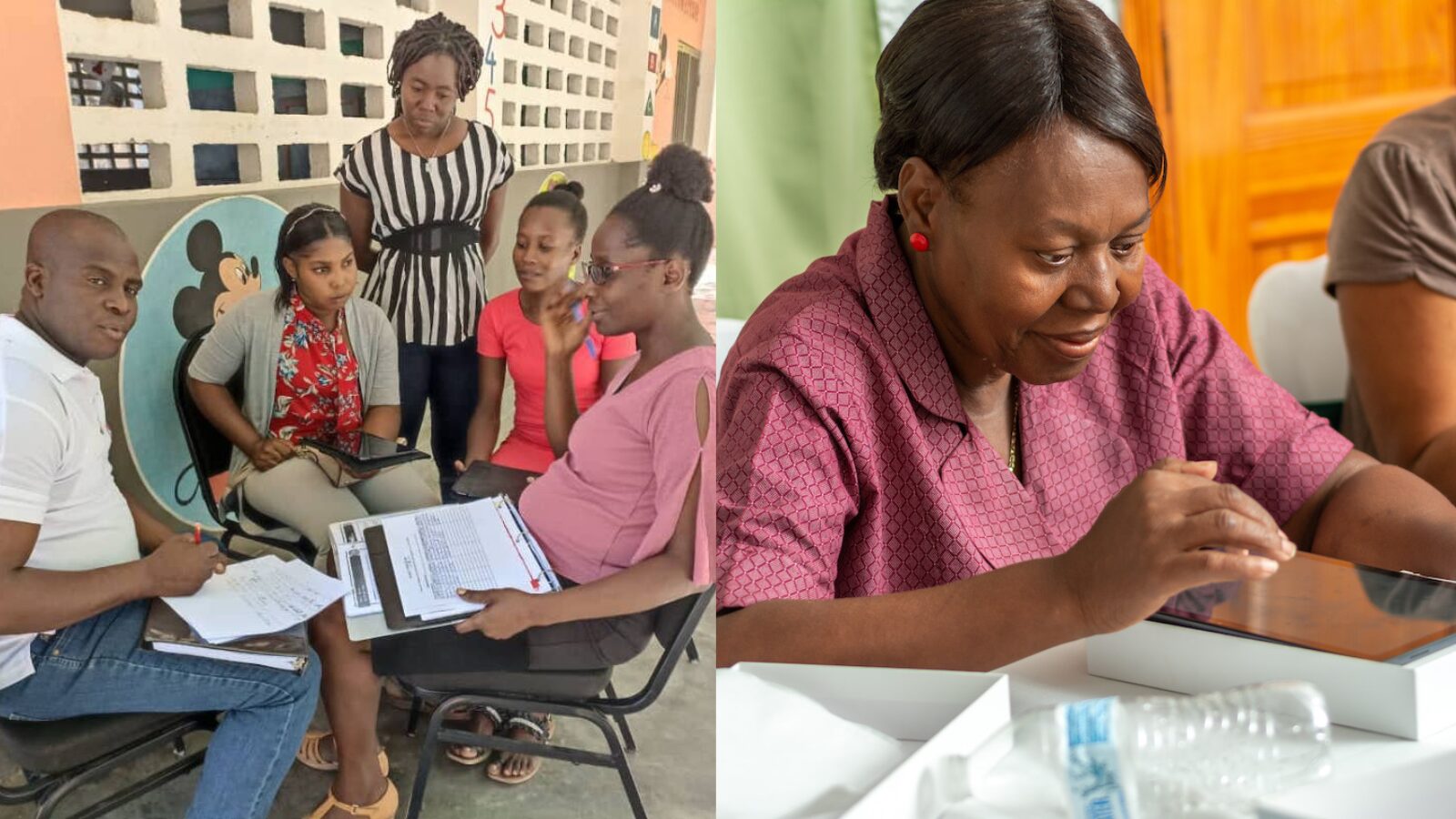While the pilot has since come to a close, the vital work continues and is being led by Model School Network (MSN), Anseye Pou Ayiti (APA), Summits Education, and Blue Butterfly.
Are you interested in staying connected to this work? Sign up to receive emails from our partners.
Moreover, faced with numerous disruptions due to COVID-19, natural disasters, and ongoing political unrest, the majority of Haitians lack devices, internet access, and digital tools and training that would allow them to transition to remote or hybrid learning. As a result, the gap is widening between wealthy and poor students.

A Haitian teacher leverages digital tools to deliver a classroom lesson. Photo credit: Anseye Pou Ayiti.
We have learned from past efforts that technology alone does not improve education. This pilot focuses on how pedagogy, content, and technology can work together to enhance learning. Pilot goals included:
The approach emphasized applying lessons from past efforts and iterating over time to ensure that the results and impact are sustainable.

A Haitian teacher leads a lesson for young students. Photo credit: Anseye Pou Ayiti.

Teachers from Model School Network and Anseye Pou Ayiti participate in a blended learning training in Gonaives and Mirebalais, Haiti. Photo credit: Alfredo Adné Paul & Joseph Thierry Antoine
have reliable access to solar power, satellite internet connectivity, tablet devices, and classroom speakers.
received regular training and individualized coaching to develop their pedagogical skills.
are learning with interactive, relevant digital content in Haitian Creole.
now feel comfortable or very comfortable using technology in the classroom. Teachers report increased student engagement and ownership of learning, better access to teaching tools, and a more positive classroom climate.
The Report on First Year Implementation and Results, compiled by Education Development Center (EDC), shares results from their monitoring and evaluation of year one of the pilot. Their analysis points to many promising results—including high student engagement in the observed lesson segments—as well as recommendations for future growth. Check out the executive summary!
“This project contributes to the physical, intellectual, and social development of the students. It develops children’s self-confidence and autonomy, enabling them to solve everyday problems.”
Renel Ylysse, Pedagogical Coach, Model School Network
